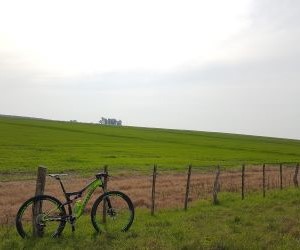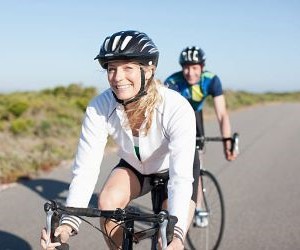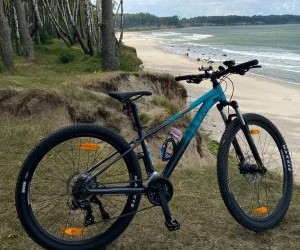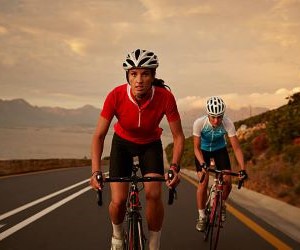Explore the best cycling and bike touring routes in Nadi, Fiji. Ride coastal roads, explore hidden villages, and soak up island vibes on two wheels.
WHAT ARE THE MOST IMPORTANT THINGS TO PACK FOR BIKE TOURING?
Bike touring is the ultimate blend of freedom and endurance—riders carry everything they need to explore new landscapes while staying self-sufficient on the road. Packing correctly can make the difference between a smooth journey and a stressful experience. This article explores the most important items to pack for bike touring, including tools, clothing, camping essentials, and nutrition strategies. Whether you’re heading out for a weekend trip or a month-long expedition, these recommendations will help you balance weight, functionality, and safety, ensuring that you’re prepared for any adventure.

Core gear and tools
The foundation of any bike tour is the gear and tools that keep your bike rolling. Mechanical issues can strike at any time, and self-sufficiency is part of the touring ethos. Carrying the right tools prevents minor inconveniences from becoming trip-ending problems.
Essential repair tools
At minimum, every bike tourist should carry a multitool with Allen keys, screwdrivers, and a chain breaker. Tire levers, spare tubes, and a reliable pump or CO₂ inflator are non-negotiable. A patch kit adds a safety net for multiple punctures.
Multitool with chain breaker for on-the-road fixes.
Two or more spare tubes plus a patch kit.
Mini-pump or CO₂ inflator with extra cartridges.
Tire boots for sidewall tears.
Bike-specific spares
Spare parts save time and money when mechanical issues arise far from bike shops. Common spares include brake pads, quick links, derailleur hangers, and extra cables. A compact bottle of chain lube ensures smooth drivetrain function throughout the journey.
Storage systems
Touring demands efficient storage. Panniers, frame bags, and handlebar rolls distribute weight evenly and keep gear organized. Waterproof models protect contents during storms, while lightweight dry bags add modular flexibility for clothing and food.
Clothing and personal comfort
Bike touring requires versatile clothing that adapts to changing weather and terrain. Comfort and function should outweigh fashion, as riders face long days in the saddle across unpredictable conditions.
Cycling essentials
High-quality padded shorts, moisture-wicking jerseys, and cycling gloves form the base kit. Multiple pairs of socks reduce the risk of blisters, while a lightweight windbreaker or rain jacket protects against sudden weather changes.
2–3 pairs of padded cycling shorts for rotation.
Moisture-wicking jerseys and base layers.
Lightweight waterproof jacket or gilet.
Cycling gloves for comfort and hand protection.
Off-bike clothing
Touring isn’t all pedaling—comfortable clothing for evenings and rest days matters. Lightweight pants, a warm fleece, and casual shoes balance comfort with packability. Quick-drying fabrics simplify washing on the go.
Weather adaptability
Mixed climates demand layers. Arm and leg warmers add versatility without bulk. A thermal cap, overshoes, and breathable rain gear prepare cyclists for cold, wet days. Sunglasses with interchangeable lenses handle variable light conditions.
Camping, food, and safety
Long-distance tours often mean carrying camping gear, food supplies, and safety equipment. Being self-reliant ensures peace of mind, especially in remote areas where resources are scarce.
Camping gear
Lightweight, compact camping gear balances comfort with portability. A small tent or bivvy bag, sleeping pad, and down sleeping bag provide shelter and rest. Portable stoves and titanium cookware allow for hot meals on the road.
Lightweight tent or bivvy bag for shelter.
Sleeping bag rated for expected conditions.
Inflatable or foam sleeping pad for insulation.
Compact stove, fuel, and cookware set.
Food and hydration
Cyclists burn thousands of calories daily while touring. Portable, calorie-dense foods like nuts, oats, and pasta keep energy levels stable. A hydration system with refillable bottles or a water bladder ensures regular fluid intake. Water purification tablets or filters provide safety in areas with uncertain water sources.
Safety essentials
First aid kits, reflective gear, and reliable lights are essential. A GPS device or offline maps reduce the risk of navigation errors. Communication devices, such as a phone with a power bank or a satellite tracker in remote areas, provide extra security.
Ultimately, the most important things to pack for bike touring balance necessity with weight. By prioritizing tools, versatile clothing, camping essentials, food, and safety gear, cyclists ensure resilience in the face of challenges. Proper packing transforms a ride from a logistical struggle into a smooth adventure, allowing riders to focus on the joy of the journey.
YOU MAY ALSO BE INTERESTED








